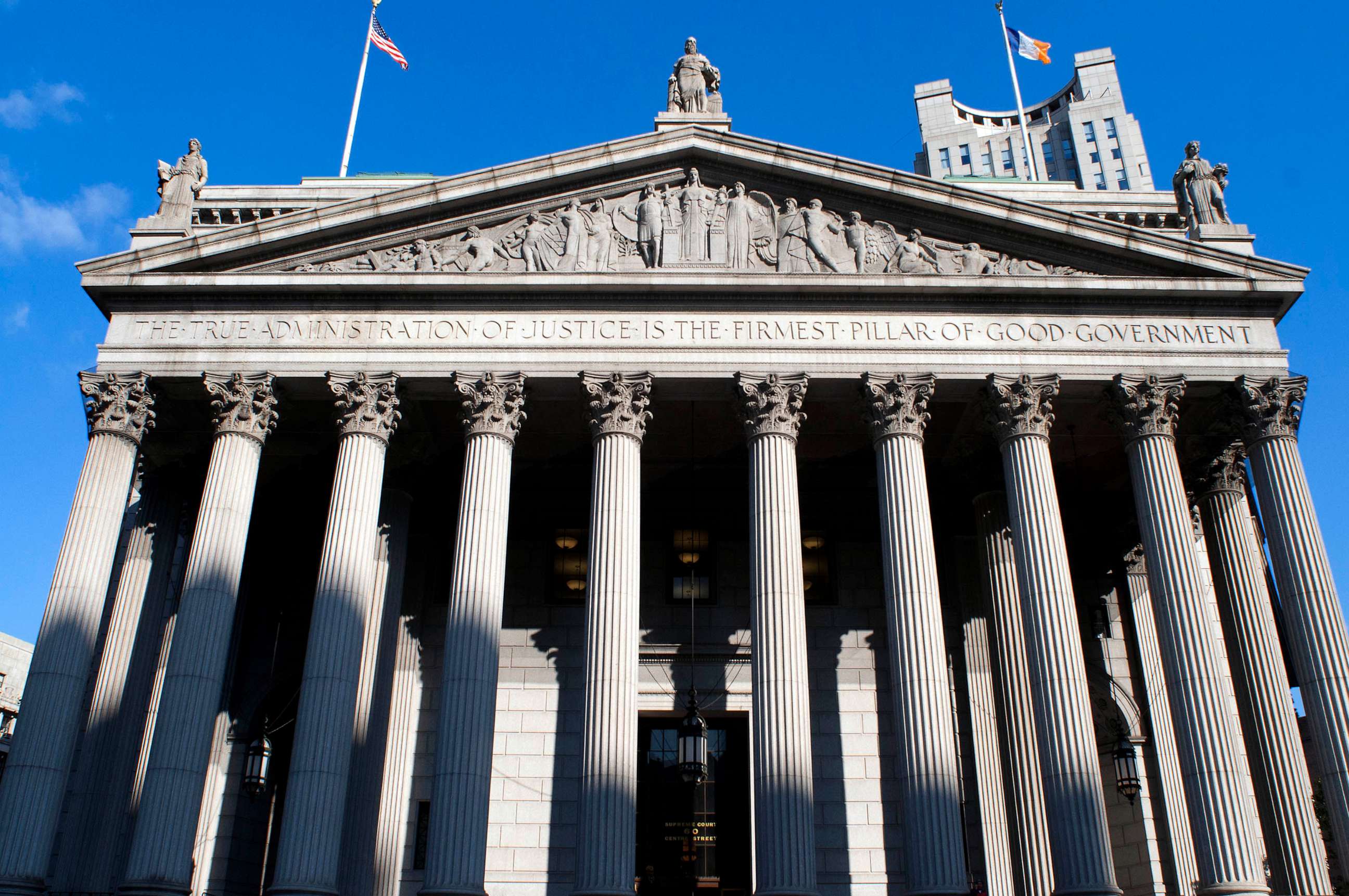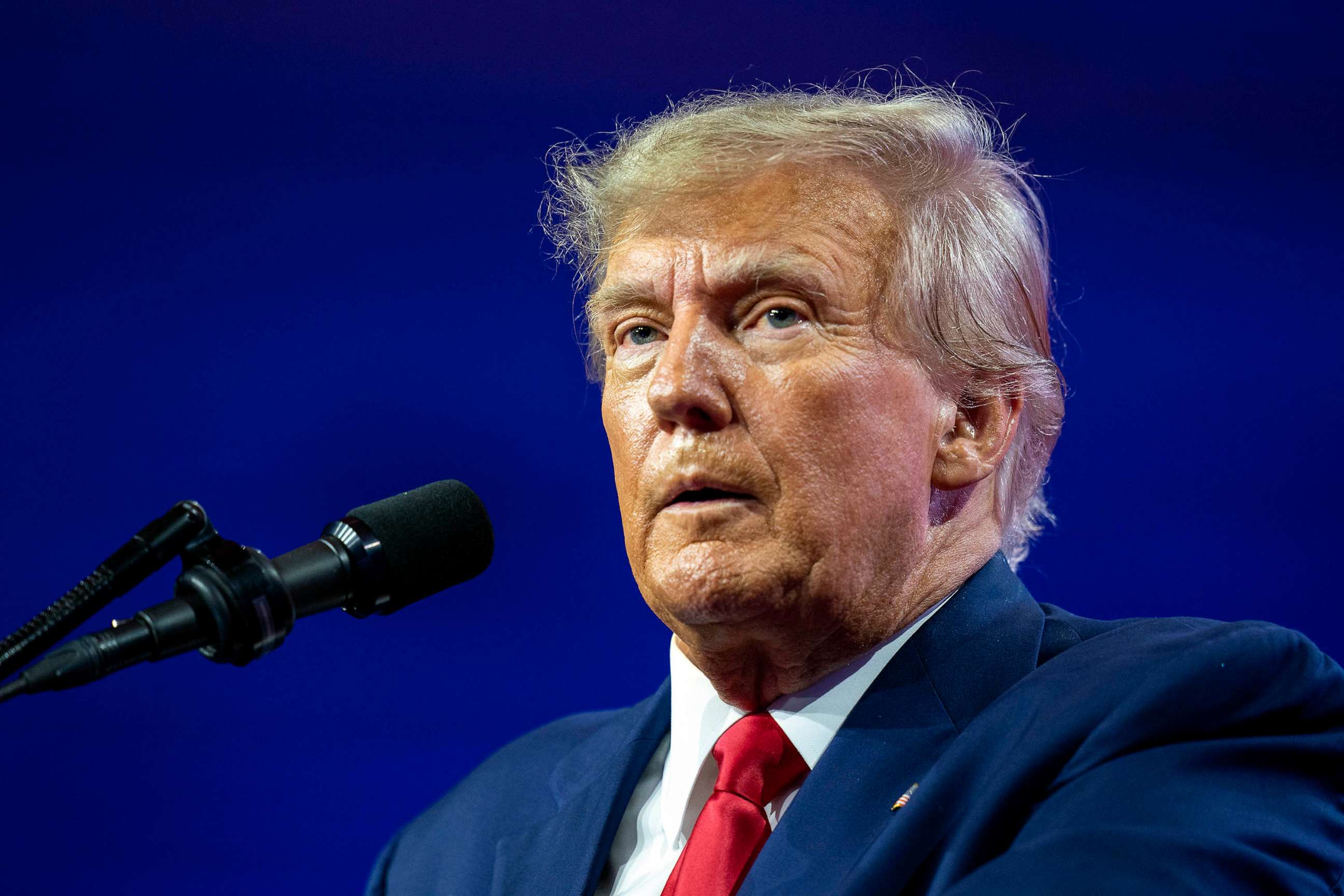What does indictment mean with Donald Trump facing federal and state charges
Criminal proceedings typically start with an arrest and a court appearance, but legal experts said that on many occasions, especially in white-collar crimes, suspects aren't hit with charges or a visit from an officer until long after an official investigation is underway.
Being charged vs. indicted
Typically, if a crime is being investigated, law enforcement agents will make an arrest, file initial charges and bring a suspect to be arraigned in court, Vincent Southerland, an assistant professor of clinical law and the director of the criminal defense and reentry clinic at NYU School of Law, told ABC News.

After this arraignment, prosecutors would impanel a grand jury for a formal criminal indictment. Southerland, who has been practicing law in New York state for 19 years, said this process includes giving the jury evidence, possible testimony and other exhibits before they can officially charge a person with felonies.
Southerland said in most criminal cases, "prosecutors and investigators have more than enough evidence or a case to bring that indictment in quickly."
Burden of proof
Southerland said that in all grand jury indictment cases, jurors are only tasked with determining if a case is strong enough that it should go to a criminal trial.
"The burden of proof is incredibly low," he said. "This is not like in a criminal trial where something needs to be proven beyond a reasonable doubt."
One major difference between a grand jury and a trial jury in many states and in federal cases is in how a decision is decided. Grand jurors only need a simple majority vote to indict a suspect, whereas trial juries must come to a unanimous decision for a verdict.

"Grand juries tend to take their obligations quite seriously," he said.
Southerland said indictments are never indications that suspects or defendants are guilty and a trial jury must still weigh charges.
"When we talk about indictments, we're talking about whether there is enough evidence to go forward with a trial, which is probable cause," he said. "Defendants are still innocent until proven guilty and the indictment is just the first step of the legal process."
Why prosecutors may take longer for an indictment
However, Southerland noted that prosecutors can start with the criminal indictment process, especially if their case needs more evidence to press those charges.
Cheryl Bader, an associate clinical professor of law at Fordham University, told ABC News that such a move is common in white-collar criminal investigations that involve looking at delicate nuances in the state law and require more time.

Bader said investigations into prominent figures also prompt prosecutors' offices to make their case to the grand jury in the most meticulous and thorough way possible.
"In an investigation like this, the prosecutor isn't in a rush and wants to put their ducks in order. They want the evidence fully organized before they go to trial," Bader told ABC News.
Trump was indicted in April by the Manhattan District Attorney's Office on 34 counts of falsifying business records.
A Manhattan grand jury investigated Trump's possible role in the hush payment to adult film actress Stormy Daniels. The former president has denied any wrongdoing, including having an affair with Daniels. His attorneys have framed the funds as a response to an extortion plot, and he has pleaded not guilty.
Trump on Thursday was indicted for a second time on federal charges in an investigation into his handling of classified documents, according to sources familiar with the investigation.
The federal indictment is expected to be a "speaking indictment" that will lay out chapter and verse the government’s case to the public, according to sources. Trump, who is expected in court on Tuesday, said on Truth Social that he was "an innocent man."
Southerland said that in some cases, a defendant might be offered the opportunity to testify before a grand jury and go on the record.
Southerland said that anything a witness or a defendant testifies to a grand jury can be used in court.
"It hamstrings here if you want to change your defense," he said.
What happens after an indictment
Bader said suspects who are indicted can be arrested and remanded into custody while they await trial, but in most white-collar cases, the defendant is released on their own recognizance.
A Manhattan judge didn't order Trump to be held pending trial following his arraignment hearing in April.
Southerland said another advantage that prosecutors have when it comes to indicting a suspect first before charging them is the secrecy and confidentiality of the grand jury. He noted, however, that in Trump's pending case, media attention and witness statements have brought the case into the public eye.
"With a lot of things Trump-related, a lot of conventions just don't hold," he said.
As the various investigations into Trump continue, Southerland said the public needs to keep in mind that criminal indictments and charges aren't indicative of any suspect's guilt.
"Don't take the indictment that it's the final word in the case," he said.
Editor's note: This story was originally published in April 2023 and has been updated.




